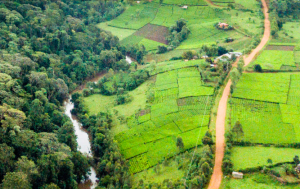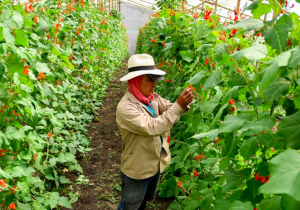Focal point
Location
World Resources Institute
The World Resources Institute is a global environmental think tank that goes beyond research to put ideas into action. We work with governments, companies, and civil society to build solutions to urgent environmental challenges. WRI’s transformative ideas protect the earth and promote development because sustainability is essential to meeting human needs and fulfilling human aspirations in the future.
WRI spurs progress by providing practical strategies for change and effective tools to implement them. We measure our success in the form of new policies, products, and practices that shift the ways governments work, companies operate, and people act.
We operate globally because today’s problems know no boundaries. We are avid communicators because people everywhere are inspired by ideas, empowered by knowledge, and moved to change by greater understanding. We provide innovative paths to a sustainable planet through work that is accurate, fair, and independent.
Resources
Displaying 16 - 20 of 94Roots of prosperity
Almost one-quarter of the world’s land area has been degraded over the past 50 years because of soil erosion, salinization, peatland and wetland drainage, and forest degradation. The resulting damage, in terms of lost ecosystem goods and services, costs the world an estimated US$6.3 trillion a year.
The Business of Planting Trees
Across the world, companies with a wide range of business models are making money from planting trees. These restoration enterprises are proving that restoring degraded forests and agricultural lands is not only good for the planet, but a good business opportunity as well.
Scramble for Land Rights: Reducing Inequity between Communities and Companies
Indigenous and community lands, crucial for rural livelihoods, are typically held under informal customary arrangements. This can leave the land vulnerable to outside commercial interests, so communities may seek to formalize their land rights in a government registry and obtain an official land document.
Fair share for women: Towards more equitable land compensation and resettlement in Tanzania and Mozambique
Women disproportionately bear the negative impacts of large-scale land investments (in agribusiness, extractives, logging) in the global South.
▪▪Lack of formal land rights and their subordinate role in the household and community lead to the marginalization of women in decision-making processes and the bypassing of them in the distribution of compensation and the planning and implementation of resettlement.
Scramble for Land Rights: Reducing Inequity between Communities and Companies
Community land, crucial to rural livelihood around the world, is increasingly targeted by commercial interests. Its loss can lead to environmental degradation, increased rural poverty and land disputes that last for years. Without formal legal recognition of their land rights, communities struggle to protect their land from being allocated to outside investors.







